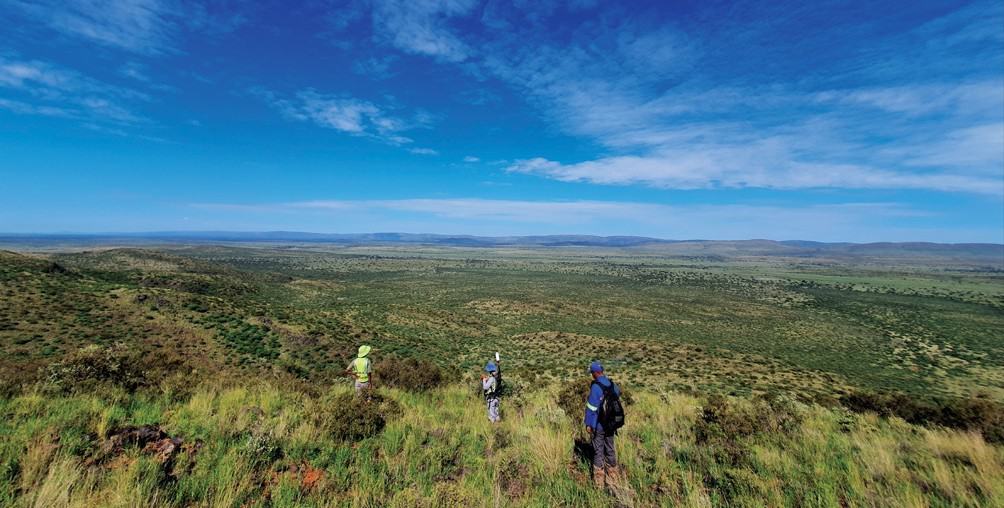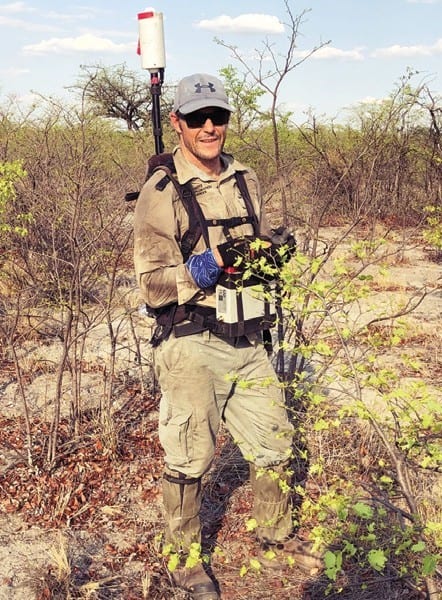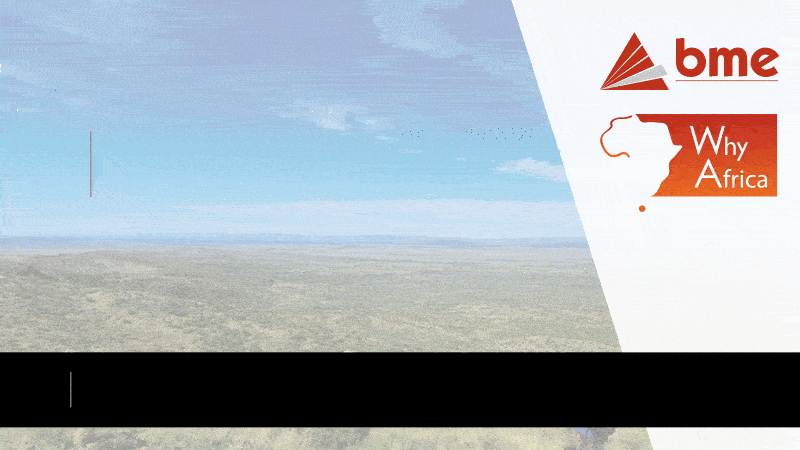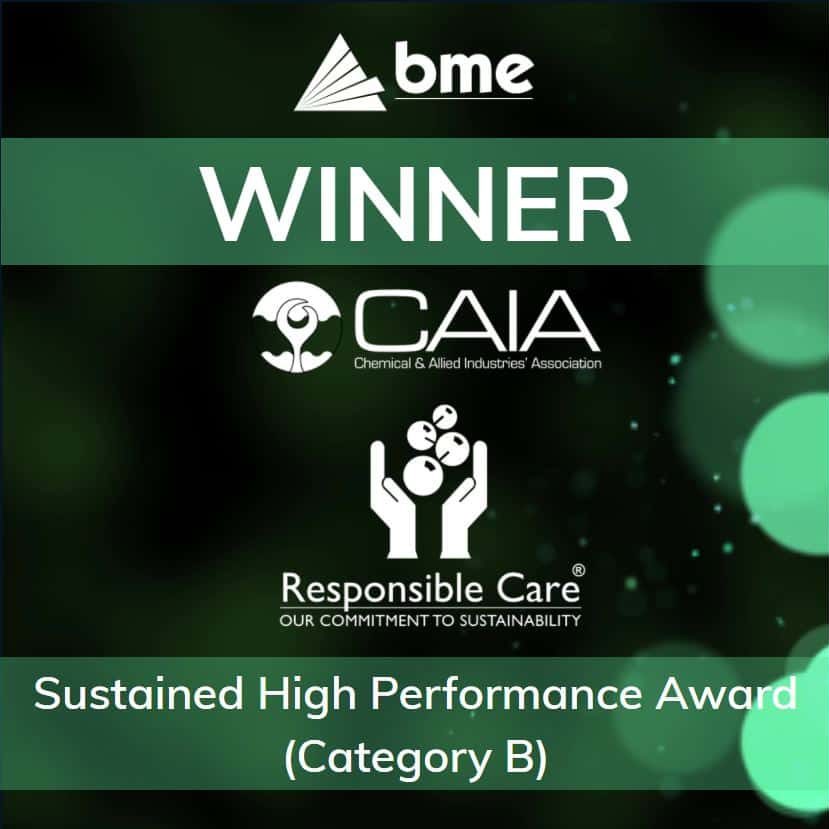With Africa’s mineral sector and spectacular geology in the spotlight, companies like RES are well positioned as interest in African exploration continues to grow.
Click here for background on this series.
Originally posted in Why Africa Magazine | Article by Leon Louw | Photographs by Remote Exploration Services
Exploration around the world has seen a significant uptick in 2021/2022 compared to a lethargic 2020. While logistical challenges and managing the Covid-19 pandemic dominated the agenda in 2020, geologists and exploration companies returned to the field in 2021 in numbers as it became easier to travel again in the wake of Covid-19 restrictions.
According to the S&P Global Market Intelligence’s Corporate Exploration Strategies series, the aggregate annual global nonferrous exploration budget has increased by 35% year on year to USD11.2-billion from USD8.3-billion in 2020.
According to Kevin Murphy, Principal Analyst with the Metals and Mining Research team at S&P Global Market Intelligence, a faster-than-expected recovery in market conditions and easing of lockdowns allowed explorers to reactivate projects by mid-2020, which caused some programmes to carry over into 2021.

“Along with higher metals prices and increased financing activities, this has led to a strong budget recovery in 2021. We expect the aggregate exploration budget to increase between 5% and 15% year over year for 2022,” says Murphy.
Africa disappoints but the future is bright While Africa underperformed somewhat with budget allocations for exploration up just 12% in 2021 to USD1.1-billion, exploration activity has at least returned to pre-Covid-19 levels and is expected to increase over the next two to three years with exciting projects in the pipeline in 2022/2023.
Despite many positive trends, some African countries continue grappling with regulatory certainty and political instability. Investors need certainty before parting with their hard-earned cash and mining is a long-term commitment if there is only bare ground to begin with. Exploration remains the bedrock on which mining is built, and if there are no funds for geologists and junior explorers to find new deposits with, any country’s ambition to become a mining giant will be stillborn. But there are some countries and regions in Africa where great strides have been made in enticing investors and luring back the intrepid exploration companies. West African countries like Ghana, Senegal and Burkina Faso come to mind, although security and political risk is a concern in the entire West Africa/Central African belt.
Southern African countries like Namibia, Botswana, Zambia, and even troubled Zimbabwe, have seen the best geologists exploring the Kalahari Craton after a reluctant hiatus, while the floodgates have opened in Tanzania and geologists are returning in large numbers after the departure of the late president John Magufuli.

The company has been providing services for exploration companies in Africa for more than 20 years.
RES well positioned to manage challenges According to Brett van Coller, Managing Director of Cape Town based mineral exploration consultancy firm Remote Exploration Services (RES), more and more opportunities are opening-up across Africa as a growing number of governments adopt the use of land cadastre management systems.
Van Coller has more than 24 years’ experience in exploration and mining projects across Africa. RES is one of the most intrepid and active exploration service companies in Africa, and its top-class geologists and geophysicists have clocked many miles working on exciting discovery focused projects.
Van Coller says that the RES team is well-positioned to manage the emerging challenges and meet clients’ needs in the exploration and resource industry in 2022 and beyond.
“The full extent of the impact of Covid-19 on the exploration and resource industry continues to unfold. This means we need to strategically explore new opportunities and consider how to best position our team, skills, and experience to ensure we emerge from this crisis evolved, better adapted, and equipped.
“Fortunately, it seems that there is revived interest from both the majors and junior mining companies interested in Africa and significantly more exploration funding available. This has provided RES with a broader client base and enabled us to invest in new opportunities and continue growing the range of services we can offer industry,” says van Coller.
Namibia, Zambia and Botswana are three countries that van Coller regards as offering great potential opportunities. WhyAfrica will visit all three of these countries as part of its inaugural 2022 Southern Africa Road Trip in June and July, supported by RES, who has played a prominent role in making this unique and first of its kind experience possible.
According to van Coller, initiatives like the WhyAfrica Road Trip highlights what Africa has to offer from the ground up – both the challenges and the exciting opportunities.
Stability lures potential investors
Botswana, traditionally a solid democracy characterised by regulatory certainty and political stability, has drawn interest not only for its well-known diamond deposits, but increasingly for its copper potential. In the race to negotiate a global energy transition, copper has become paramount, and analysts are predicting an imminent supply deficit in the short-to medium-term.
Zambia has traditionally been the copper hot spot in Africa. The mining industry in Zambia has ex- perienced somewhat of a revival after Edgar Lungu was recently deposed at the ballot box by an energetic president Hakainde Hichilema. Hichilema has rung the changes since his inauguration, and in the process lured investors back to what could probably be the African success story of 2022.
Namibia has always been a geologist’s dream, and yet so much of the country remains unexplored. However, with the uranium price heading north and with gold in vogue again, exploration companies are heading back to the desert lands of Southern Africa.
“Overall, the impact of Covid-19 was well buffered by the nature of the diversified mining portfolio of Namibia,” Fabian Shaanika, Sector Lead of Mining and Natural Resources at Rand Merchant Bank, recently told the Global Business Report.
Namibia is the world’s fourth largest uranium producer, has the seventh largest diamond output and hosts smaller mining operations in other strategic commodities such as copper, iron, and zinc. The mining value chain is one of the historic bedrocks of Namibia and today accounts for approximately 11.1% of GDP.
According to Jurie Wessels, Executive Chairman of Vanadium Resources, an Australian junior mining company, Namibia is attractive due to its consistent economic and political stability, well-established infrastructure, and rich mineral resources.
The country witnessed an increase in its Investment Attractiveness Index from 58.22 in 2019 to 59.72 in in 2020 in the Fraser Institute’s Annual Survey of Mining companies.
RES has several on-going projects in Namibia and has been operating in the country for more than 20 years. Tracing its roots back to early exploration work in the late 1990s, the company was formally established in the early 2000s. Today it has a team of 50 committed geoscience professionals, servicing every aspect of the discovery cycle – from defining prospective areas for early-stage exploration, through to extending the resource on advanced brownfield projects.
The essence of exploration success in Africa
Van Coller says that operating in Africa, no matter where, remains a challenge and requires careful planning to ensure that the company continues delivering projects on time, within budget and safely.
“RES has developed comprehensive in-house operational procedures, recorded in its Operations Manual. This document captures the experience gained through many years of tough field work in diverse terrains across Africa which, together with its documented policies and procedures, provides an essential reference tool for successful project management and implementation across the continent.

In addition, van Coller cites the selfless commitment of each member of staff as, undoubtedly, the key factor that ensures RES prevails in unpredictable environments. “Ultimately, we lean heavily on our teams’ commitment to excellence, a strong safety culture and can-do attitude. These three elements ensure that we employ the latest and most appropriate technology on projects, are dedicated to practicing good science, and prioritise safety, while striving to manage logistics seamlessly and maintain administration that is accurate and appropriate.”
For van Coller and his RES team, the most valuable aspect of exploration and geophysical surveys is the integrity of the data.
“We recognise that exploration success starts at the coalface. Integrity of data is critical, and it is essential that we take a systemic view. For this reason, we place as much importance and value on bagging and tagging of samples out in the field, as we do on a 3D inversion back at the office. Close attention is paid to detail and all client deliverables are reviewed and signed off by a Principal Geoscientist and overseen by the Technical Director,” he says.
Van Coller adds that the company attaches great value to innovation. “Implementation of an appropriate technology specific to our client’s project needs requires effective communication, with a clear understanding of scope and deliverables. The diversity of interests and strengths within our team has allowed us to drive numerous R&D initiatives. We proactively invest in the development and upskilling of our team and look to create an environment where our staff are empowered to take personal responsibility for contributing to what RES can offer.” Exploring is the foundation of mining in Africa. With more countries in Africa opening their doors for business, investment will follow, and companies like RES are well positioned to continue assisting mining companies make new discoveries. Indeed, Africa beckons.





